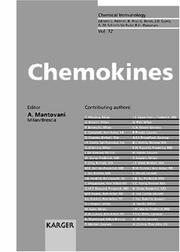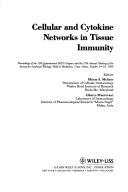| Listing 1 - 9 of 9 |
Sort by
|

ISBN: 3805568614 3318004235 Year: 1999 Publisher: Basel Karger
Abstract | Keywords | Export | Availability | Bookmark
 Loading...
Loading...Choose an application
- Reference Manager
- EndNote
- RefWorks (Direct export to RefWorks)

ISBN: 1281139564 9786611139568 0387738983 0387738975 1441925376 Year: 2008 Publisher: New York : Springer,
Abstract | Keywords | Export | Availability | Bookmark
 Loading...
Loading...Choose an application
- Reference Manager
- EndNote
- RefWorks (Direct export to RefWorks)
In September 2005 an International Meeting on “Targeted Therapies in Cancer: Myth or Reality” was held in Milan. This successful Meeting was intended to represent a forum for scientists and clinicians working in cancer drug discovery and therapy to share their reflections and experiences on how the paradigm shift from empiricism to molecular targeted therapies is contributing to the translation of basic knowledge into new therapies for cancer patients. This book collects the contributions given by scientists and clinicians, from Academia and Industry, who participated to this Meeting. We hope that this book contributes to improve our approach to cancer drug discovery and, ultimately, to find new, more efficacious and better tolerated drugs for cancer patients. It provides an overview of diverse approaches ranging from drug discovery to cellular therapy. Although this change in paradigm has been useful, its entry into the clinical arena was associates with unforeseen problems including the emergence of resistance, unexpected side effects and failures. Time is therefore ripe for a critical cultural reflection on the state of the art, prospects and limitations. Ultimately, is targeted therapy in cancer a myth or a reality?
Cancer --- Treatment. --- Cancer therapy --- Cancer treatment --- Therapy --- Oncology. --- Human genetics. --- Medicine. --- Human physiology. --- Developmental biology. --- Cancer Research. --- Human Genetics. --- Medicine/Public Health, general. --- Human Physiology. --- Developmental Biology. --- Development (Biology) --- Biology --- Growth --- Ontogeny --- Human biology --- Medical sciences --- Physiology --- Human body --- Clinical sciences --- Medical profession --- Life sciences --- Pathology --- Physicians --- Genetics --- Heredity, Human --- Physical anthropology --- Tumors --- Cancer research. --- Health Workforce --- Cancer research
Book
ISBN: 9781788017411 Year: 2021 Publisher: London Royal Society of Chemistry
Abstract | Keywords | Export | Availability | Bookmark
 Loading...
Loading...Choose an application
- Reference Manager
- EndNote
- RefWorks (Direct export to RefWorks)
Digital
ISBN: 9780387738987 Year: 2008 Publisher: New York, NY Springer Science+Business Media, LLC
Abstract | Keywords | Export | Availability | Bookmark
 Loading...
Loading...Choose an application
- Reference Manager
- EndNote
- RefWorks (Direct export to RefWorks)
General embryology. Developmental biology --- Human physiology --- Hygiene. Public health. Protection --- Oncology. Neoplasms --- Human genetics --- medische genetica --- gezondheidszorg --- genetica --- oncologie --- fysiologie --- embryologie (geneeskunde)
Book
ISBN: 183916073X 1839160837 Year: 2021 Publisher: Cambridge : Royal Society of Chemistry,
Abstract | Keywords | Export | Availability | Bookmark
 Loading...
Loading...Choose an application
- Reference Manager
- EndNote
- RefWorks (Direct export to RefWorks)
With contributions from global leaders in the field, this book will be an ideal reference for toxicologists, endocrinologists and researchers interested in developmental biology, regulatory toxicology and the interface between environment and human health.
Book
ISBN: 1493913115 1493913107 Year: 2014 Publisher: New York, NY : Springer New York : Imprint: Springer,
Abstract | Keywords | Export | Availability | Bookmark
 Loading...
Loading...Choose an application
- Reference Manager
- EndNote
- RefWorks (Direct export to RefWorks)
Macrophages are a key component of the innate immune system and play an integral role in host defense and homeostasis. On one hand, these cells contribute to host defence by triggering inflammation, displaying microbicidal/tumoricidal properties, regulating the activation of adaptive immunity and promoting resolution of inflammation. On the other hand, they contribute to essential trophic functions such as neural patterning, bone morphogenesis and ductal branching in mammary glands. Thus, macrophages are extremely versatile cells that can respond efficiently to tissue microenvironmental cues by polarizing to distinct phenotypes, depending on the functions they need to perform. Indeed, functional diversity and plasticity are hallmarks of these cells. Macrophages may also play a detrimental role. An overwhelming body of literature has indicated their crucial role in pathogenesis. The list includes sepsis, cancer, metabolic syndrome, immunodeficiency, auto-immune disease- virtually impacting every major pathology that we know. These observations have suggested macrophages and their related molecules as potential targets in therapeutic applications. Available evidence proclaims macrophages as a key player in homeostasis, host defense and disease. Crucial developments in the past few years call for a re-evaluation and update of our understanding of macrophages. The present book is an endeavour that attempts to provide state-of-the art knowledge of these cells in health and disease.
Macrophages. --- Histiocytes --- Mononuclear phagocytes --- Antigen presenting cells --- Connective tissue cells --- Killer cells --- Phagocytes --- Reticulo-endothelial system --- Immunology. --- Monoclonal antibodies. --- Microbiology. --- Antibodies. --- Medical Microbiology. --- Microbial biology --- Biology --- Microorganisms --- Antibodies, Monoclonal --- Monoclonal immunoglobulins --- Immunoglobulins --- Molecular cloning --- Immunobiology --- Life sciences --- Serology --- Medical microbiology. --- Antibodies --- Immune globulins --- Immune serum globulin --- Blood proteins --- Globulins --- Plasma cells --- Antibody diversity --- Antigens --- Bacterial immunoglobulin-binding proteins
Digital
ISBN: 9781493913114 Year: 2014 Publisher: New York, NY Springer
Abstract | Keywords | Export | Availability | Bookmark
 Loading...
Loading...Choose an application
- Reference Manager
- EndNote
- RefWorks (Direct export to RefWorks)
Macrophages are a key component of the innate immune system and play an integral role in host defense and homeostasis. On one hand, these cells contribute to host defence by triggering inflammation, displaying microbicidal/tumoricidal properties, regulating the activation of adaptive immunity and promoting resolution of inflammation. On the other hand, they contribute to essential trophic functions such as neural patterning, bone morphogenesis and ductal branching in mammary glands. Thus, macrophages are extremely versatile cells that can respond efficiently to tissue microenvironmental cues by polarizing to distinct phenotypes, depending on the functions they need to perform. Indeed, functional diversity and plasticity are hallmarks of these cells. Macrophages may also play a detrimental role. An overwhelming body of literature has indicated their crucial role in pathogenesis. The list includes sepsis, cancer, metabolic syndrome, immunodeficiency, auto-immune disease- virtually impacting every major pathology that we know. These observations have suggested macrophages and their related molecules as potential targets in therapeutic applications. Available evidence proclaims macrophages as a key player in homeostasis, host defense and disease. Crucial developments in the past few years call for a re-evaluation and update of our understanding of macrophages. The present book is an endeavour that attempts to provide state-of-the art knowledge of these cells in health and disease.
General microbiology --- Immunology. Immunopathology --- Medical microbiology, virology, parasitology --- Pathological biochemistry --- Human medicine --- monoklonale antilichamen --- immunologie --- tumoren --- medische microbiologie --- medische biochemie --- biochemie --- biomedische wetenschappen --- microbiologie --- moleculaire biologie

ISBN: 9780387738970 9780387738987 Year: 2008 Publisher: New York, NY Springer Science+Business Media, LLC
Abstract | Keywords | Export | Availability | Bookmark
 Loading...
Loading...Choose an application
- Reference Manager
- EndNote
- RefWorks (Direct export to RefWorks)
No BCC for this title.

ISBN: 0471560979 Year: 1991 Publisher: New York Chichester Toronto Wiley-Liss
Abstract | Keywords | Export | Availability | Bookmark
 Loading...
Loading...Choose an application
- Reference Manager
- EndNote
- RefWorks (Direct export to RefWorks)
| Listing 1 - 9 of 9 |
Sort by
|

 Search
Search Feedback
Feedback About UniCat
About UniCat  Help
Help News
News